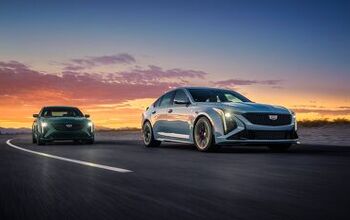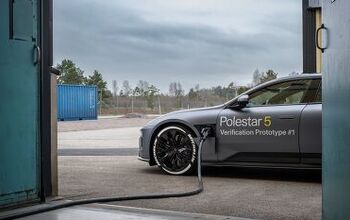Ask Bark: Old Vs. New Tech - Which Is More Reliable?

Matt writes:
I am anticipating that my 1997 Subaru Legacy wagon, with 210,000+ miles on the clock, will need replacing soon. I’m lucky in that my wagon is a five-speed manual with the 2.2-liter EJ motor, so has been fairly bulletproof. In the last 19 years, it has needed only minimal work besides regular maintenance and wear items (brakes, clutch, tires), aside from the occasional axle or other random parts (i.e. alternator). I’ve been looking around at affordable commuter 5-door hatchbacks (Mazda3, Impreza, Focus, etc.) as it must fit multiple kids, sports gear, and I need a daily driver for work (~45 miles round trip).
Here’s my question: I would like something a little sporty as more than half of my commute is on fun twisty back roads. I keep going back and forth on whether or not to go for a naturally aspirated or turbo engine, followed by trying to decide between auto or manual. I feel like my five-speed-manual Subaru skewed my perception to believe a naturally aspirated engine and manual transmission is a much more sturdy, robust and reliable setup that’s less prone to breaking and needing repairs (fewer parts to fail) than a turbo and/or automatic.
Am I wrong?
The other half of my commute in bumper-to-bumper, stop-and-go traffic makes me want to ditch the manual, but curvy roads make me want to go with a turbo manual. My wallet and the fact that I’ve always driven cars into the ground (180K+ miles) makes me think N/A and a manual transmission will be more reliable, cheaper and safer in the long run.
Am I totally off base? Is this true for current, late model cars?
Thank you,
Hey! I used to have one of those Legacy Wagons. I wish you’d written to tell me about that axle thing a year ago — I might still have one if you had!
As far as your question goes, the answer is simple: yes and no.
I don’t think there’s any real reason to suspect modern automatic transmissions as less reliable than modern manuals. In fact, based on how quickly OEMs are running away from manuals for any “non-performance car,” there may not be many manuals left for us to buy in the near future. The question may become moot. There are still examples of notoriously unreliable autos (the wretched FCA nine-speed and, yes, Ford Fiesta autos come to mind), but, as a whole, I think that the industry has gotten the automatic transmission thing figured out.
That doesn’t mean automatics in the C segment cars you mentioned are any fun to drive. Far from it. I think the cheapest car with an automatic transmission one might describe as “fun” would be the GTI with the DSG option.
Turbos? Eh, that’s a whole other kettle of fish. When Caroline Ellis looked at buying a Sonic hatchback two years ago, I advised her to get the naturally aspirated 1.8-liter Ecotec motor over the 1.4-liter turbo because I wasn’t convinced that the latter was durable over the long haul. I still think that was solid advice, but we’ll never know because a flood totaled her car. Sad trombone.
For your specific situation, I share your concern about the long-term reliability of turbocharged, smaller motors. I had no problem getting a turbo motor in my Fiesta ST, because I was only doing a 24-month lease, and the car would be under warranty the entire time. My next car purchase is likely a turbo boosted to high-heavens — but, again, I don’t typically keep cars more than 3-4 years at the most.
I also think that you’ll be somewhat disappointed by the fuel mileage you’ll get out of most of these little turbos. Your commute isn’t too bad at 45 miles round trip, but you mentioned a fair amount of stop and go traffic. That’s not awesome for turbo gas mileage. Combine that with the hooning you’ll likely do in the curvy section of the trip and you’ll probably experience fuel mileage that can best be described as “Barkish.” (I’m notorious for getting much-worse-than-EPA fuel mileage in every car I drive. Heavy right foot, even for a size 8 1/2.)
So based on your unique set of circumstances, I think the right car for you is a Mazda3 hatch with a manual. I’d love to recommend a Focus ST here, but you’ll get a disturbingly large number of hits if you do a search on any ST forum for “turbo failure.” And when turbos fail on a FoST, they tend to do nasty things to the rest of the motor too if you don’t catch it in time. If you wanted a 36 month lease, I wouldn’t hesitate to recommend one, but I can’t see you driving a FoST for 19 years. As long as the notorious Mazda rust issues are resolved in the current gen, I think you’ll be happy behind the wheel of a manual Mazda3 for decades to come.
Remember, if you want some advice regarding a car purchase, email me at barkm302@gmail.com or DM me at @barkm302 in the Twittersphere.
[Image: Electric Turbocharger, Valeo]

More by Mark "Bark M." Baruth
Latest Car Reviews
Read moreLatest Product Reviews
Read moreRecent Comments
- Theflyersfan I know their quality score hovers in the Tata range, but of all of the Land Rovers out there, this is the one I'd buy in a nanosecond, if I was in the market for an $80,000 SUV. The looks grew on me when I saw them in person, and maybe it's like the Bronco where the image it presents is of the "you're on safari banging around the bush" look. Granted, 99% of these will never go on anything tougher than a gravel parking lot, but if you wanted to beat one up, it'll take it. Until the first warning light.
- Theflyersfan $125,000 for a special M4. Convinced this car exists solely for press fleets. Bound to be one of those cars that gets every YouTube reviewer, remaining car magazine writer, and car site frothing about it for 2-3 weeks, and then it fades into nothingness. But hopefully they make that color widespread, except on the 7-series. The 7-series doesn't deserve nice things until it looks better.
- Master Baiter I thought we wanted high oil prices to reduce consumption, to save the planet from climate change. Make up your minds, Democrats.
- Teddyc73 Oh look dull grey with black wheels. How original.
- Teddyc73 "Matte paint looks good on this car." No it doesn't. It doesn't look good on any car. From the Nissan Versa I rented all the up to this monstrosity. This paint trend needs to die before out roads are awash with grey vehicles with black wheels. Why are people such lemmings lacking in individuality? Come on people, embrace color.


































Comments
Join the conversation
Focus ST's have a handful of issues (mine is in for the 5th time this year with cold start misfires), but bad turbos isn't a widespread issue. I wouldn't worry about the turbo. Ford's overall build quality is much more alarming than a few people early on that had a bad turbo.
VW TDI owner here. No idea what you guys are talking about, turbos are super reliable. Door handles, though, those'll kill you.